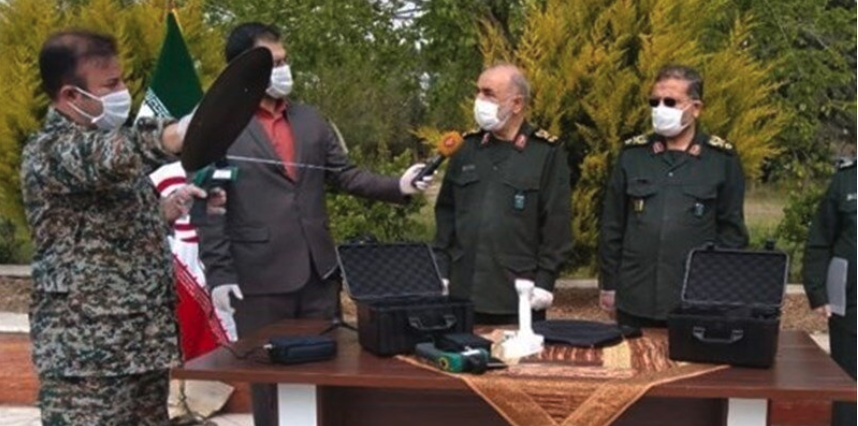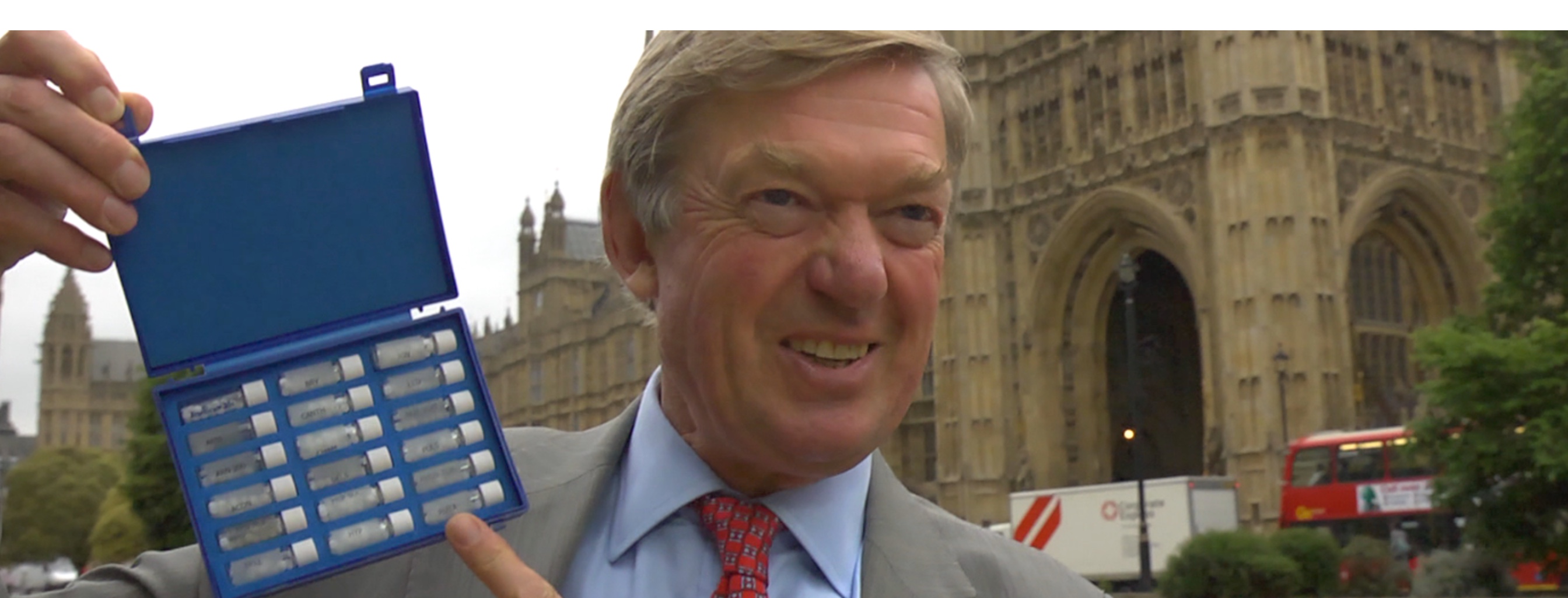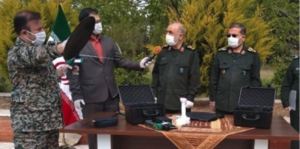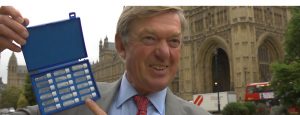Quack Word #3: ‘Doctor’
UPDATE 12/2/07
Congratulations to Ben Goldacre and the crew at Bad Science for getting Dr Gillian McKeith banned from using the title ‘Dr’. In today’s Guardian she is fully exposed as a Menace to Science. The Advertising Standards Authority have agreed that her use of that cheaply acquired title is thoroughly misleading.
One down…
************************************************************
 Yes, I know. This is surprising quack word, but let me explain.
Yes, I know. This is surprising quack word, but let me explain.
I’m not really writing about the word ‘Doctor’ but about titles and qualifications in general. More specifically, it is about using titles and qualifications, however acquired, to provide a sense of authority to healing claims when sound evidence is lacking.
‘Trust me, I’m a Doctor.’
Quacks lack evidence for the effectiveness of their treatments or theories and so rely on a number of other techniques to convince you of their worth, including testimonials, anecdotes and baffling pseudoscience. However, one of the surest giveaways of quackery is the flaunting of titles and qualifications. The quack will proudly put ‘Dr’ before their name and ‘PhD’ afterwards. Normally, one or other of ‘Dr’ and ‘PhD’ will do. This is an ‘appeal to authority’. It is solely there to impress. The quack is setting themselves up as a respected authority on a subject and so there is no need to look any further at any real arguments or evidence in favour of what they are saying.
Now of course, evidence-based medicine, and science in general, is full of Doctors, PhDs, Professors and diplomas. The difference is that, in general, these titles are not always flaunted. Look at any scientific paper in a prestigious journal like Nature and you will see just names and no titles. The authority of the paper comes from the strength of the argument and the rigours of the experiment, not the qualifications of the authors.
Qualifications do count, of course. They are part of the apprenticeship of science. But once the years have past, they become increasingly irrelevant. Look at how doctors tend to revert back to Mr/Ms etc as they become more experienced and advanced in their careers. Their reputation for excellent work is what matters, not their past exam success.
If you are still not sure, why not try a little experiment for yourself? Next time you are in a book shop, go and visit the popular science section. It is probably quite small, near the back and you may need a shop assistant to help you. Now look at the books and see how many titles you can spot on the covers. Names like Richard Dawkins, Steven J Gould, Hawkins, Dennett, Penrose and Pinker ought to leap out. All luminaries in their fields, but not a qualification in sight. If you look inside at the brief biography, you may spot the odd professorship mentioned alongside their stated appreciation of their family. Their titles, qualifications and awards are insignificant in the face of their arguments. If you do find a title, it is likely to be of a little known author.
Now go back towards the front of the shop until you end up in the ‘Mind, Body, Health and Spirit’ section. This won’t be hard to find. It will be three to four times the size of the science section. In a bad bookshop, the science books might be mixed up with it. However, the actual useful contribution to human knowledge on those shelves will fit in a small shoe box. A waste of trees. Now look for qualifications. It won’t take you long. They will be printed in huge, silver, embossed letters on the spine and cover. Looking at the Amazon best sellers at the moment we see names like Dr Gillian McKeith Phd, Doreen Virtue PhD, Jeffrey E. Young PhD and Dr Wayne Dyer. If the author hasn’t got a title themselves, then they will get a forward written by someone who has and that will appear in big letters. Those embossed letters count for everything. Noel Edmonds is missing a trick here.
But surely these people must know what they are talking about? You can’t just lie about your qualifications?
Well, you don’t need to lie, but there are a number of ways of getting round the three to fours years of library work, fine tuning of experiments, paper writing, seminar giving, thesis writing, thesis re-writing, and tortuous examinations – all on a pittance of pay – that are the staple of postgraduate degrees, if you want to start earning big quack bucks fast.
Let us count the ways…
1. Swap Subjects
You could have mistakenly done all the hard work above only to find out that being a geologist does not make as much money a selling bucket loads of useless vitamin pills. I’ve written about this before. Even though you are now a nutritional ‘expert’ there is no need to make it clear that your PhD was in geology, economics or bongo playing. Flaunt those letters after your name!
2. Join a ‘New University’
The massive expansion in higher education in the UK, and probably elsewhere in the world, has resulted in a deluge of former polytechnics, colleges and furniture shops now calling themselves universities. Even better is that, in the mad dash to attract students and, hence attract funding, the hard subjects of physics and chemistry have been dropped due to the difficulty of persuading students to take them. Far better to offer courses in homeopathy, nutrition and Madonna. Set yourself up as Professor of Reiki Studies and bingo, you’re off.
3. Do a Cheap Correspondence Course through an Unaccredited American College.
This might involve a little work and at least cost you a fair amount of postage, but at least you will be able to defend yourself in a court of law that you are entitled to the letters after your name. Sometimes called the “looneyversities”, these institutions often dole out pretty useless awards for little more than a fee. Proper academic standards are rarely upheld and are not subject to academic review by the usual authorities.
Paul McKenna PhD sued a journalist for saying his doctorate was not real. I quote from the Guardian:
Central to the case is an article published in October 2003 headlined “It’s a load of doc and bull”, in which Lewis-Smith wrote that McKenna’s first PhD, awarded by La Salle university in Louisiana, was a sham. “I discovered that anyone could be fully doctored by La Salle within months (no previous qualifications needed),” he wrote, just so long as they could answer the following question correctly: ‘Do you have $2,615, sir?'” This followed a number of articles dating from 1997 in which, among ther things, the columnist calls McKenna a “non-doctor”, a “dildo” and compares him to Dr Crippen, the notorious murderer executed in 1910 for killing his wife.
In fact, La Salle university was not as it seemed: in late 1996 the former president, Thomas Kirk, admitted to the FBI that it was not officially accredited; the following year he was jailed for five years for fraud. McKenna told the court he knew nothing of the fraud when he enrolled for a doctorate in hypnosis in June or July 2005. While he admitted the revelation had “devalued” the qualification, he insisted he did not believe it rendered it “bogus”
The judge found in favour of Dr McKenna noting that “Mr McKenna was not, in my judgment, dishonest and, for that matter, whatever one may think of the academic quality of his work, or of the degree granted by La Salle, it would not be accurate to describe it as “bogus”. So there. The title ‘Doctor’ is not protected, meaning anyone can pretty much call themselves this. The quality of any degree behind the title is irrelevant.
Perhaps, the most celebrated case in the UK is that of Dr Gillian McKeith PhD. Her credentials have been scrutinised by a number of observers, including the Sunday Mail with an article entitled Is Channel 4’s latest food guru Dr Gillian really a Quack and a danger to our health? Perhaps the funniest analysis was done by Ben Goldacre in the Guardian who looked into her professional memberships that included the American Association of Nutritional Consultants (AANC). Dr Goldacre applied for the same membership for his recently deceased cat, Henrietta. It cost him just $60.
The qualifications of Dr Gillian have been well explored and I will give a reference shortly. It is fair to say though that she does have qualifications that everyone respects. They are in languages, business and marketing. All things she does very well and her education has obviously paid off.
Dr Gillian McKeith PhD is not afraid of legal challenges either, although sometimes they take a more ‘out-of-court’ route. If you Google “Dr Gillian McKeith PhD” you will find the following wording on the first page:
In response to a legal request submitted to Google, we have removed 1 result(s) from this page. If you wish, you may read more about the request at ChillingEffects.org.
Fortunately for posterity, I know the page concerned. You can find it here. This page is essential reading for all Gillian fans.
4. Start your own Institution or University and award Yourself Titles and Awards
Arguably the hardest work, but it can have big payoffs. The main one being that you can charge other people to get similar awards.
This is most often done in the US. The Beatles guru, Maharishi Mahesh Yogi, set up his own university so that lots of ‘research’ could be done on Transendential Meditation.
The UK has its own examples, including Patrick Holford BSc, DipION, FBant. Patrick is one of those people who you will have found in the Healthy Living section of the bookshop, in between ‘Angel Healing’ and ‘The Photographic Kama Sutra’. Patrick styles himself as the “leading spokesman on nutrition, food, environmental and health issues”.
Once again, Patrick’s BSc was in psychology, not nutrition. His significant qualification in health matters is the DipION awarded by the Institution of Optimum Nutrition which was set up as a ‘charitable and independent educational trust ‘ by none other than Patrick Holford himself. Hire a few rooms in some managed office space in Richmond, London and you can have an International Headquarters. Even better, get one of those new universities (say Luton) to accredit your course and you can expect a stream of fresh new students. Nevermind that the most recent official quality review of Luton (now Bedfordshire) concluded:
As a result of its investigations, the audit team’s view of the University is that: limited confidence can be placed in the soundness of the University’s current and likely future management of the quality of its academic programmes and the academic standards of its awards.
This has not gone too unnoticed. The Sunday Telegraph posted an article entitled “Is this the worst university in Britain?”.
The Institute’s philosophy is one of nutritional therapy, treating disease through what you eat, as highlighted by the quote on the front page of its web site:
“The Doctor of the future will no longer treat the human frame with drugs, but rather will cure and prevent disease with nutrition”
Thomas Edison, c 1870
So Thomas Edison not only invented the light-bulb but was a pioneering nutritionist. It’s a shame that the rest of science has not yet caught up with his thinking and adopted this in the way we have adopted the lightbulb. Maybe it is because the lightbulb is based on sound science and is useful?
Does any of this matter? Well, people do take Mr Holford seriously. He has been associated with comments that Vitamin C is better than AZT in the treatment of AIDS, where the evidence for that has been very poor. This is burning issue in South Africa now where the Health Minister believes you can treat HIV with potatoes. Someone is dying there every two minutes of HIV and AIDS. Also, the general public take him seriously. He last came to my attention when researching the QLink trinket that is sold as a way to stop ‘harmful’ EMF disrupting your life energy thingumajigs. He sells them on his website and provides this most fantastic endorsement:
There are many gadgets out there promising to protect you from electromagnetic radiation and give your energy a boost. I’ve investigated many and did not find any stacked up. The one exception is Q Link. The scientific proof is deeply impressive and that’s why I wear one. I recommend you do the same.
So, all the other EMF pendants are quackery and nonsense, Patrick, except the ones you sell?Presumably, Patrick will be setting up an Institute of Optimum Quantum Physics as well now.
So why do the likes of Dr Gillian and Patrick see qualifications as so important to them? The key here is to see that they are both nutritionists and both sell food supplements of one form or another. The problem in selling these things is convincing people they need them; basic nutrition for most people is not hard. It’s common sense – eat a balanced and varied diet, eat your greens and don’t overindulge too often. Not much of a market for superfoods and vital supplements there. If, however, you make all this sound very complex, stress the importance of eating at an ‘optimum’, throw in some pseudoscience to make it sound like you know this stuff deeply, flaunt your qualifications and make it all sound too hard for the individual to keep track off, then you just might create a market for your overpriced alfalfa extract.
Dr Canard Noir Bsc(Hons.), PhD








28 comments